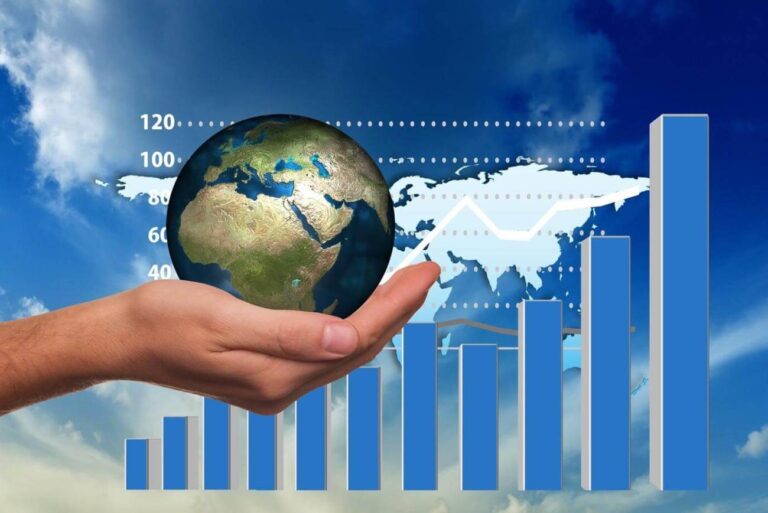
World Finance: Essentials of the Global Economy Introduction
World finance is vast concept, which includes global system of legal and monetary relations (finances) existing between various countries. It directs the global flow of funds, affects economic development, and drives changes in trade, investment and currency values. Knowing about world finance is important for those living in U.S. whether they are individuals or businesses if they want to make decisions related to their finances keeping the global economy in mind.
This article will explain what world finance is, how it operates, and the components comprising it: finally (and most importantly) why all this actually matters to the US economy. We will cover the struggles and associated gains in operating on a global financial scale.

What is World Finance?
World finance is a compound mesh of international economic operations (money transfers, investments, lending credits and trade) conducted across national borders. It includes:
International Banking: Banks that do business in many countries offering loans, deposits and general financial services to individuals and corporations globally.
Global Trade: An international trade is started when goods and services are bought by domestic residents from a foreign source; the goods, services—and money. Flow to a foreign country.
Foreign Exchange (Forex) Markets: Currencies bought and sold, used in exchange rate adjustment with imports/exports/tourism.
Overseas Investments: This is money moving through the buying and selling of shares, bonds, property or other things in overseas locations.
Multinational Corporations (MNCs): Companies operating in a number of countries, often using complicated financial relationships
Key Players in World Finance
The following entities are crucial to world financial stability:
International Monetary Fund (IMF): Offers easier access to non-concessional IMF resources for low-income countries and provides loans and technical assistance to those in need of financial crisis.
World Bank funds developmental projects in infrastructure of emerging nations.
Bank for International Settlements (BIS): The central bank to the central banks of national central banks.
Central banks like the US Federal reserve, the European Central bank and Bank of Japan as they influence interest rates and money supply
Organized financial market segments (i.e. private financial institutions); commercial banks, hedge funds, investment banks, and insurance companies.
Implications for the USA Economy of Global Finance
Because the US economy is so intricately connected with worldwide businesses and markets. World finance affects:
Trade Balance: The net value of US imports against exports.
Investment Opportunities: Now, US investors have the ability to diversify their portfolios by investing in other jurisdictions.
Price of currency: The value of the US dollar has a direct impact on how strong purchasing power, and even what kind of travel we can afford.
Economic Stability: US interest rates, employment, inflation are all linked to global financial crises.
For instance, oil price changes, European interest rate adjustments, or political challenges in Asia can reach American businesses and consumers.
The Role of Technology in Revolutionizing World Finance
Global finance has undergone rapid changes due to technology.
Digital Banking: Settlement time. Transaction with one click across borders
With Bitcoin, Ethereum and other digital assets reaching untold heights in recent months a global economic dialogue is dollars no more.
Blockchain: Supply of trade transactions in A better and clear means.
Fintech Startups: These are new organisations that provide innovative payment, loan and investment platforms.
For U.S. consumers, this translates to quicker payments, less expensive transactions, and greater opportunity in global markets.
Global Finance: Risks and Challenges
The Increase of the movement of people, ideas, in addition to money might also be benefited from an industry that offers a lot; it can become so big and move so fast that it is hard for its regulators to catch up.
Rate: Currency fluctuations can affect trade and fund.
Economic Dependence: How much a country relies on markets in other countries has made economies susceptible from the point of view of global crisis.
Financial Crises: Any problems experienced in one part of the world will affect the rest of the world in no time.
Cyber Security Threats: The digital rise, demands data protection.
Regulatory discrepancies: Different countries have different rules which may be complex to inter-country trade.
The US and Global Finance
That is why the US has had a distinct status in the world finance Outer part (fullfile).
The Dollar: This is the global reserve currency, and for that reason most international transactions are settled in USD.
Wall St Influence: US finance market are global setting agenda.
Economic Size: US is world’s largest economy. US policies drive changes in global interest rates, investment flows and trade.
Take the Federal Reserve, for instance, which by adjusting interest rates can impact borrowing expenses around the world.
The US and Global Finance
That is why the US has had a distinct status in the world finance Outer part(fullfile).
The Dollar: This is the global reserve currency, and for that reason most international transactions are settled in USD.
Wall St Influence: US finance market are global setting agenda.
Economic Size: US is world’s largest economy. US policies drive changes in global interest rates, investment flows and trade.
Take the Federal Reserve, for instance, which by adjusting interest rates can impact borrowing expenses around the world.
The Future of World Finance
World finance is dominated by a few trends which are becoming increasingly important in the near future.
Green Finance: Investment in sustainability to make up for or combat climate change.
Central Bank Digital Currencies (CBDCs): Governments Playing with the Concept of Official Digital Money.
AI and Automation: Smart algorithms that are making financial decision-making better.
Tougher International Regulations: Global Movement to Curb Fraud, Money Laundering, and Tax Evasion.
The kind of adjustments needed for the US to remain preeminent in the global economy among these forces of new policies cannot be overstated.

Global trade, global investment, and economic stability could not exist without the bedrock of world finance. In short, for the United States economic growth and security require familiarity with, and utilization of, the international financial system.
Our SunIP database not only provides up-to-the-second information on global markets, tracks technological advances, posits the risks to be prepared against and the opportunities this presents but also allows us to see how different US investors and industries can effectively traverse the mountainous train track of world finance ahead!
In a globally connected economy like today, we cannot have a strong US economy if the global financial system is not healthy. Seeing the link can help Americans make desicions that are more financially salient, whether their own investments or business strategies.
Our Post


From Paycheck to Prosperity: The Ultimate Blueprint for Sustainable Wealth Building
